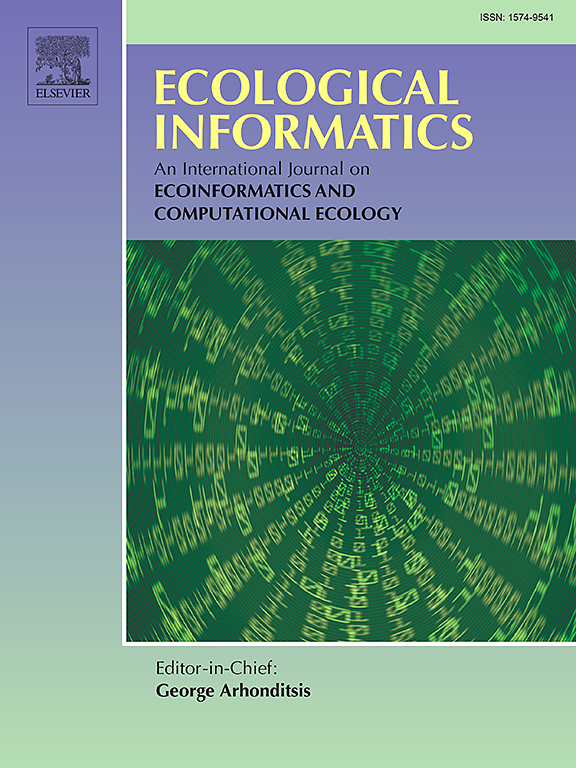A comparison of deep neural network compression for citizen-driven tick and mosquito surveillance
IF 7.3
2区 环境科学与生态学
Q1 ECOLOGY
引用次数: 0
Abstract
Citizen science has emerged as an effective approach for infectious disease surveillance. With advancements in machine learning, entomologists can now be relieved from the labor-intensive task of species identification. However, deploying machine learning models on mobile devices presents challenges due to constraints on battery life and memory capacity. In this study, we explore the potential of various model compression techniques for deploying machine learning models on resource-limited devices, enabling low-energy consumption and on-device processing for disease surveillance in remote or low-resource settings. We compared two main-stream model compression techniques, pruning and quantization on various mobile devices. Our findings indicate that quantization methods outperform pruning methods in terms of efficiency. Furthermore, we propose to integrate structured and unstructured pruning to enhance model performance while addressing key constraints of mobile deployment.
基于深度神经网络压缩的蜱蚊监测比较
公民科学已经成为传染病监测的一种有效方法。随着机器学习的进步,昆虫学家现在可以从物种识别的劳动密集型任务中解脱出来。然而,由于电池寿命和内存容量的限制,在移动设备上部署机器学习模型存在挑战。在本研究中,我们探索了各种模型压缩技术的潜力,用于在资源有限的设备上部署机器学习模型,从而实现远程或低资源环境下疾病监测的低能耗和设备上处理。我们在不同的移动设备上比较了两种主流的模型压缩技术,剪枝和量化。我们的研究结果表明,量化方法在效率方面优于修剪方法。此外,我们建议集成结构化和非结构化修剪,以提高模型性能,同时解决移动部署的关键约束。
本文章由计算机程序翻译,如有差异,请以英文原文为准。
求助全文
约1分钟内获得全文
求助全文
来源期刊

Ecological Informatics
环境科学-生态学
CiteScore
8.30
自引率
11.80%
发文量
346
审稿时长
46 days
期刊介绍:
The journal Ecological Informatics is devoted to the publication of high quality, peer-reviewed articles on all aspects of computational ecology, data science and biogeography. The scope of the journal takes into account the data-intensive nature of ecology, the growing capacity of information technology to access, harness and leverage complex data as well as the critical need for informing sustainable management in view of global environmental and climate change.
The nature of the journal is interdisciplinary at the crossover between ecology and informatics. It focuses on novel concepts and techniques for image- and genome-based monitoring and interpretation, sensor- and multimedia-based data acquisition, internet-based data archiving and sharing, data assimilation, modelling and prediction of ecological data.
 求助内容:
求助内容: 应助结果提醒方式:
应助结果提醒方式:


